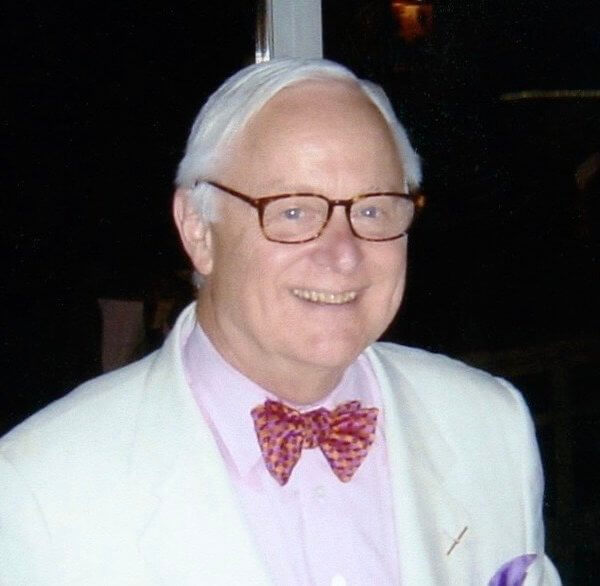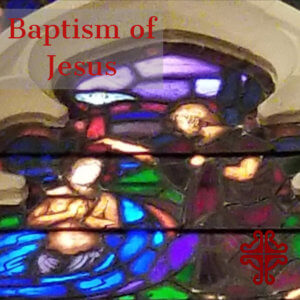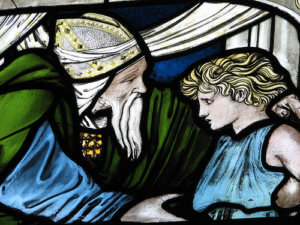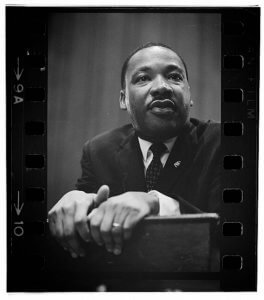
Manifestation of the Divine Nature of Jesus
 For Christians, Epiphany is the day on which we witness the manifestation of the divine nature of Jesus. At the baptism of Jesus the heavens open and Jesus is revealed as the Son of God, in whom God is well pleased. Jesus comes to a deeply troubled world to establish the examples of love of God and love of neighbor for God’s people.
For Christians, Epiphany is the day on which we witness the manifestation of the divine nature of Jesus. At the baptism of Jesus the heavens open and Jesus is revealed as the Son of God, in whom God is well pleased. Jesus comes to a deeply troubled world to establish the examples of love of God and love of neighbor for God’s people.
As Della+ told us last Sunday, the manifestation of Jesus arrives just in time. For, in the words of Vermont Royster’s annual Christmas editorial: So the light came into the world and the men who lived in darkness were afraid, and they tried to lower a curtain so that man would still believe salvation lay with the leaders. The men of darkness were offended and they tried to put out the light. In Jesus’ time, Herod tried to put out the light. But the three Magi, men of good will, would not allow it. And so the light overcame the darkness.
Country in Crisis
On January 6, our country fell into crisis. But as the day progresses, many persons of good will gather, and remember. They awake to the danger. Through their actions the light flickered, grew and overcame the darkness. It became a moment of national epiphany. In that sudden flash of understanding many became aware that we stood in danger of losing our nation. For a time, some forgot their inheritance. They had forgotten that our country is the great experiment. Our founding fathers established a society on the basis of the respect for laws that protect the sanctity of each individual. We have struggled, frequently failed and continue to fall short of that high national purpose. Yet our nation is the gift of God that exists nowhere else on the planet. It has not existed elsewhere in the history of humankind. On January 6, the day of Epiphany, the nation woke up to the danger.
Professor Clay Christensen at Harvard Business School, in a recent video, described the epiphany of a young Chinese professor who was just concluding his Fulbright fellowship. Christensen asked the professor what he had learned while here that surprised him about our country. The young professor responded that he had no idea how important the influence of religion was to our democracy. Democracy works, not because the government is organized to control what people do. It works because most people, most of the time, voluntarily choose to follow the law. In their past, most Americans attended a church or synagogue where they were instructed by persons whom they respect. They followed the rules, not just because they were accountable to society, but because they were accountable to God. As religion loses its presence in our society, what will become of our democracy? If you take away religion, you cannot hire enough police.
Call of Samuel
 This morning, we are told of the epiphany of young Samuel. Samuel is called to leadership by God at another time of national crisis. It is a time when the word of the Lord was rare. Visions of God are not widespread. Leadership of Israel has failed. The house of Eli has grown evil in the eyes of the Lord. Eli, the high priest has become a weak leader. Through forty years in the seat of leadership he fails to guide his sons, who are desecrating the law of God. He refuses to reprimand them for their blatant disregard of lawful behavior. Israel is descending into anarchy as government transitions from generations of tribalism. In Eli’s day, leadership is the prize to be gained from tribes fighting with each other for control. How is God to rule if the leader inherits out of tribal conflict rather than being divinely chosen? Sound familiar?
This morning, we are told of the epiphany of young Samuel. Samuel is called to leadership by God at another time of national crisis. It is a time when the word of the Lord was rare. Visions of God are not widespread. Leadership of Israel has failed. The house of Eli has grown evil in the eyes of the Lord. Eli, the high priest has become a weak leader. Through forty years in the seat of leadership he fails to guide his sons, who are desecrating the law of God. He refuses to reprimand them for their blatant disregard of lawful behavior. Israel is descending into anarchy as government transitions from generations of tribalism. In Eli’s day, leadership is the prize to be gained from tribes fighting with each other for control. How is God to rule if the leader inherits out of tribal conflict rather than being divinely chosen? Sound familiar?
The lamp of God has dimmed, but not gone out. God intervenes to establish new leadership and calls upon young Samuel. Samuel is sleeping next to the Ark, where God is said to reside. Like many called by God, Samuel is predestined for his role. His birth is God’s gift to his mother, Hannah, previously barren. In Hannah’s song of praise, she raises a national thanksgiving for God’s deliverance from the oppression of those who rule only to achieve their own interests.
God’s call always comes to those who are asleep, or in a dream. Often that first call to leadership is rejected out of a sense of unworthiness. But there is no escape. It is all part of God’s great plan. That plan is revealed in the words of our psalmist this morning: Lord, you have searched me out and known me; you discern my thoughts from afar; for you yourself created my innermost parts. After struggling in confusion, Samuel awakens to God’s call after three tries. His prophesy is to destroy the house of Eli. In the years ahead Samuel will guide Israel out of the violence of intertribal conflict. Israel will transition to government based upon the laws of God. Samuel will write the rules for Saul’s succeeding kingship and then retire in accordance with that law.
“With Malice Toward None; With Charity for All”
On January 6, our nation was revealed in crisis. Leadership had failed us. It is also a time when the word of the Lord is rare. Visions of God are not widespread. We are deeply divided and distrustful of our national principles. As with Eli’s sons, our national principles are being disregarded, our laws are not respected and national symbols violated. We refuse to listen to those with opposing views, whom we define as evil. As we approach the day of our Presidential Inauguration, love for our neighbor is nowhere to be found in our national dialogue. Where do we go from here?
I find hope in the words of our Presiding Bishop Curry, who writes in response to the events at our National Capitol. The Bishop reminds us of the national crises we have faced in the past that have challenged our national identity. He reminds us of President Lincoln’s call to define ourselves as a nation “with malice toward none; with charity for all; with firmness in the right as God gives us to see the right.” The Bishop reminds us of Martin Luther King Jr’s call: “we must choose community. Chaos is not an option. Community is our only hope.”
 Tomorrow we celebrate the gift of the life of Dr. King. Let us honor his life by remembering his commitment to love as the only way forward. He tells us, “when I speak of love I am not speaking of some sentimental and weak response that is little more than emotional bosh. I am speaking of the force that is the unifying principle of life. We must no longer worship the God of hate or bow before the altar of retaliation.”
Tomorrow we celebrate the gift of the life of Dr. King. Let us honor his life by remembering his commitment to love as the only way forward. He tells us, “when I speak of love I am not speaking of some sentimental and weak response that is little more than emotional bosh. I am speaking of the force that is the unifying principle of life. We must no longer worship the God of hate or bow before the altar of retaliation.”
Reconciliation does not come easy. It takes courage. It requires that we identify and accept the anger that has held us apart from others. It calls us to confess this to others and through acknowledging and in speaking through past differences, work towards a like exchange. As a modern-day Samuel, we are called to leadership in time of national crisis. Let us not dismiss the call. Let us not be confused as God calls us to rise and accept the commandment to love our neighbor as ourselves. Let us find courage in the words of James Russell Lowell:
Once to every man and nation comes the moment to decide
In the strife of Truth with Falsehood, for the good or evil side;
Some great cause, God’s new Messiah, offering each the bloom or blight,
Parts the goats upon the left hand, and the sheep upon the right,
And the choice goes by forever ‘twixt that darkness and that light.
This is a homily delivered to a congregation at Emmanuel Church, Newport RI on Sunday, January 17, 2021. I am indebted to Carol Grizzard for her insights into I Samuel, Introduction, The New Interpreter’s Study Bible, Abingdon Press
Roger C. Bullard, January 17, 2021
[1] Vermont Royster, Christmas Editorial 1949, The Wall Street Journal, published annually since.
[1] Clay Christensen, downloaded from YouTube: https://youtu.be/YjntXYDPw44
[1] Carol Grizzard, I Samuel, Introduction, The New Interpreter’s Study Bible, Abingdon Press, p. 391
[1] Psalm 139;1,12
[1] Presiding Bishop Michael Curry letter to the Episcopal Church of January 8, 2021 “Who shall we be?”
[1] Dr. Martin Luther King Jr, Nobel Lecture, Copyright © The Nobel Foundation 1964
[1] James Russell Lowell, (1819-1891), The Present Crisis, in English Poetry III, From Tennyson to Whitman, The Harvard Classics (1909-14)
